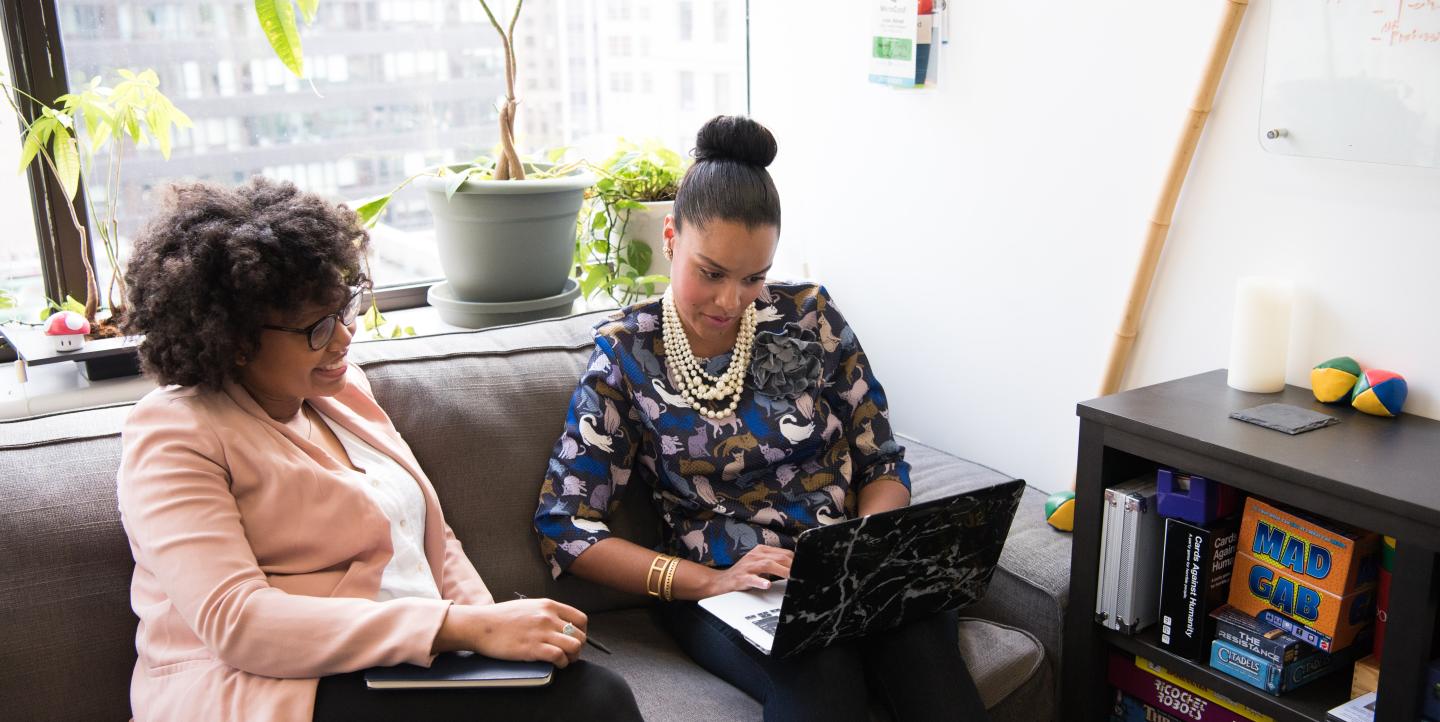A 2017 study by the National Council for the Training of Journalists (NCTJ) indicated that a lack of diversity within British media has been a major concern in the industry for over 15 years.
The study also showed that 94% of the media industry in the U.K. was white, despite the industry being largely concentrated in London, where just 60% of the population is white. The report noted that the journalism industry, despite pushes for inclusion, is still dominated by white, middle-class men.
Determined to change this, journalist Hannah Ajala, a British Nigerian, founded the platform We Are Black Journos (WABJ) in 2018, with the goal to create a platform that celebrates and empowers the validity of Black lives in an industry that traditionally lacked representation of this community.
Community impact
Headquartered in London, the WABJ community has created a safe networking space for Black journalists to connect, learn from one another and grow their presence in the industry. The community, which has over 100 members and is still growing, organizes virtual and in-person events for Black journalists to stay connected with experts and informed about the latest trends in the media industry.
Over the years, WABJ has collaborated with renowned organizations, including the Financial Times, Marie Claire, Bloomberg, ITV News, BBC, the Bureau of Investigative Journalism to host events and offer networking opportunities.
“We collaborate with them [these organizations] in a number of ways. Avery common one is our collaborative events, where we host events based on a particular theme, such as diversity, writing and career progression,” said Ajala.“We make sure that the theme [is always] really interactive, engaging and quite intimate, where people can speak with each other and learn from one another."
Benefits for journalists
In 2019, Marcia Veiga, a reporter for BBC Radio London, joined WABJ after she graduated from Bournemouth University. She hoped that joining this platform would connect her with a community of journalists who looked like her.
After Veiga joined the platform, she was assigned her first mentor, Blathnaid Healy, who provided her with editorial advice on written pieces and reviewed her cover letter before she applied for jobs.
“She made me feel more confident [and reminded me that] I am in the field that I need to be [in]. What was really challenging overseas was that I was an entry person during the pandemic, and job suits were very limited. She kept me going and gave me confidence," said Veiga.
Black journalists in the U.K. media industry should consider joining the WABJ community, Viega said. “It was very helpful for me, it changed my life in so many ways. Being granted a mentor like the one I had and having people like Hannah [Ajala] in my life has helped me become more confident in my ability to land a job.”
Lisa Hanley, a freelance journalist from Manchester, joined WABJ in 2021, where she helped run the organization’s social media and podcast. She found the experience offered a safe space to voice opinions on the media while forming a community.
“From speaking at events to interviewing my literary hero to getting a chance to banter and laugh within a professional community with people that just get me, this is something I've missed in the industry at large,” said Hanley.
Travis Levius, a travel journalist and content creator based between London and Atlanta, heard about WABJ via social media in 2018. He said he was thrilled to discover a community of people that look like him in the media.
Levius' most memorable WABJ experience was when he attended the community’s one year anniversary in London, where he had the chance to meet other Black journalists covering various beats.
“It made me feel less invisible in the U.K. journalism scene. It's also where I got to meet Hannah Ajala, whom I'd later collaborate with as a fellow co-author for Lonely Planet's Experience London guidebook,” he said.
Room for improvement
While WABJ has gone a long ways to create a safe space for Black media professionals in the U.K., the platform still has more work to do. “There are Black journos in different parts of England [who] I know are craving that sense of community and WABJ could maybe host meetups and events further up north,” said Hanley.
Levius also suggests for the platform to set up a speaker or panel initiative at U.K. colleges and universities where there's a sizable Black student population, in which Black professional journalists can inspire a new generation of reporters.
Despite WABJ’s success, Ajala said it’s difficult to run a Black-led site in today’s media landscape, which in the U.K. is still dominated by white publications. “You have to push a lot to be seen,” she said.
Staying on top of her mental health is also a struggle for Ajala and many journalists in her network, especially in the face of ongoing police violence against Black people. “Sometimes it can be discouraging when you're working towards the importance of validating and celebrating [the] Black [community], and then you see news reports of another young Black man killed by a white cop,” she said.
Another challenge has been in maintaining the community. “"You have to be really consistent with keeping the community engaged. You have to be consistent with what you said you were going to do. You have to be consistent with liaising effectively with the team,” she said. "It can be hard to find a sense of clarity and direction if you are not consistent with what you're doing."
Despite these hurdles, Ajala said that the community itself keeps her going. "I'm so grateful for the community because [running] any Black-led platform is not always totally easy, but what makes it a 100% worthwhile is seeing the interest that comes from the community, the people that care about it,” she said. “I guess [I’m] just really proud [to] be a part of a network like this.”
Photo by Christina @ wocintechchat.com on Unsplash.

